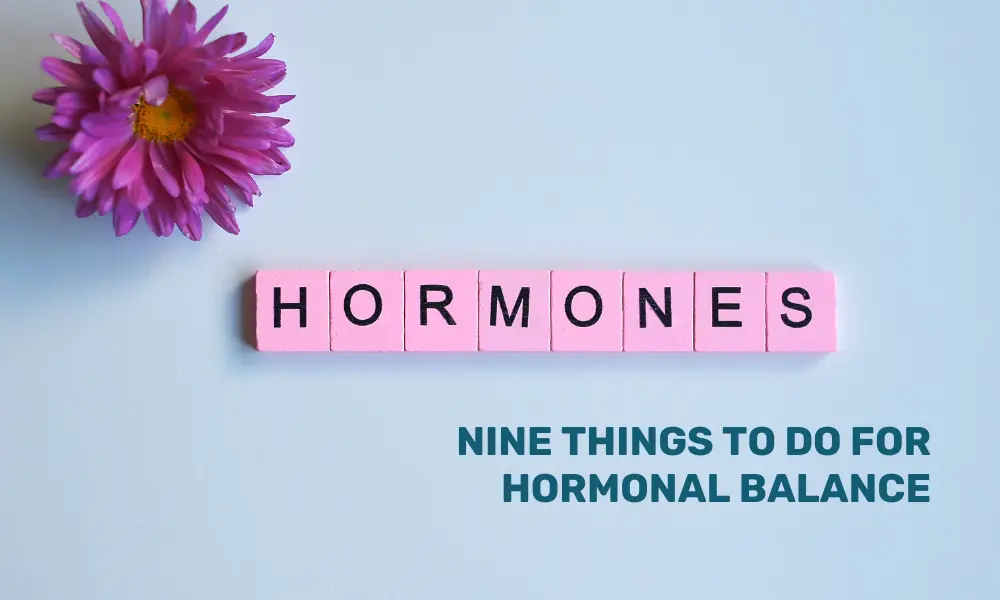Simply put, hormones are chemical messengers that are essential for regulating metabolism, fertility, mood, and other critical functions of the body. Did you know there are steps you can take to support your hormonal health?
Diet & Hormonal balance
The human body contains over 200 hormones, including estrogen, testosterone, cortisol, insulin, leptin, and thyroid hormones; all of these hormones are highly influenced by the quality of our diet. Adverse food choice causes hormonal imbalance, manifesting as low energy, mood swings, reproductive health problems, and even cognitive impairment.
Excessive intake of processed foods and refined carbohydrates is recognized to induce insulin resistance and thereby increase vulnerability to type 2 diabetes and other metabolic disorders. In contrast, whole-food-based diets with high levels of antioxidants, healthy fats, and fiber help maintain the production, regulation, and functioning of hormones, she says.
Body Weight & Hormonal balance
Eating according to what our bodies need is important for maintaining a balanced hormonal system, promoting overall well-being, and enhancing long-term health, she adds. Conversely, adverse food choices can lead to hormonal imbalances, causing issues like low energy, mood swings, and reproductive health problems.
Optimal weight and nutrition in women can favorably affect estrogen levels, improving menstrual health and fertility. Likewise, proper protein and essential fat consumption in men can increase testosterone levels, which aids in muscle mass and energy. Research has shown that even a five percent weight loss in obese women leads to significant improvement in endocrine function, such as reduced levels of free testosterone, luteinizing hormone (LH), and insulin and increased ovulation frequency.
Weight loss may also correct abnormal sex hormone levels, particularly in premenopausal women and hyperandrogenic women. Adequate consumption of micronutrients like vitamins D, B6, and magnesium can further support hormone production and regulation.
Nine Things that can help in restoring hormonal balance
By making certain alterations to our lifestyle, we can support hormonal balance, overall well-being, and long-term health:
-
Stay hydrated
Hormonal well-being is dependent on adequate hydration. Drink plenty of water to aid in metabolic functions and the transport of hormones.
-
Eat regular meals
Irregular eating or skipping meals leads to blood sugar fluctuations, which cause unstable insulin levels. Eat regularly at equal intervals during the day to ensure constant blood sugar and hormone levels.
-
Varied diet
Eat a variety of foods that are rich in nutrients to cover all the vitamins and minerals. Having a variety of colorful vegetables, fruits, lean meats, and healthy fats provides a balance of nutrients that helps overall hormonal well-being.
-
Gut health
Good gut health helps regulate hormones more effectively. To enhance digestion and nutrient uptake, include probiotics and fiber-containing foods such as yogurt, fermented vegetables, whole grains, and green leafy vegetables.
-
Adaptogenic herbs
Some herbs, such as ashwagandha, maca root, and holy basil, have properties that enable your body to respond to stress by adapting and stabilizing cortisol levels. These can help regulate hormones in response to stress.
-
Good Sleeping pattern
Get quality sleep, as it is important for regulating hormones. Not enough sleep can raise cortisol, upset insulin levels, and mess with reproductive hormones. Get 7-8 hours of quality sleep every night.
-
Cut down on alcohol & caffeine
Too much alcohol and caffeine can interfere with cortisol and estrogen levels. Reducing these stimulants can help regulate hormones better and prevent imbalances.
-
Consider intermittent fasting
This type of eating may help hormone balance by making your cells more sensitive to insulin and reducing inflammation, but it’s a good idea to see a healthcare professional to see if it’s the best choice for you.
-
Dodge endocrine disruptors
Limit exposure to synthetic chemicals found in processed foods, plastic containers, and non-organic produce. These chemicals can mimic hormones and disrupt your body’s natural hormonal balance.
Since hormones are essential for regulating metabolism, fertility, mood, and other critical functions of the body, we must practice a healthy and active lifestyle. To get a customized diet – CLICK HERE!
This article is meant for informational purposes only and must not be considered a substitute for professional advice.





